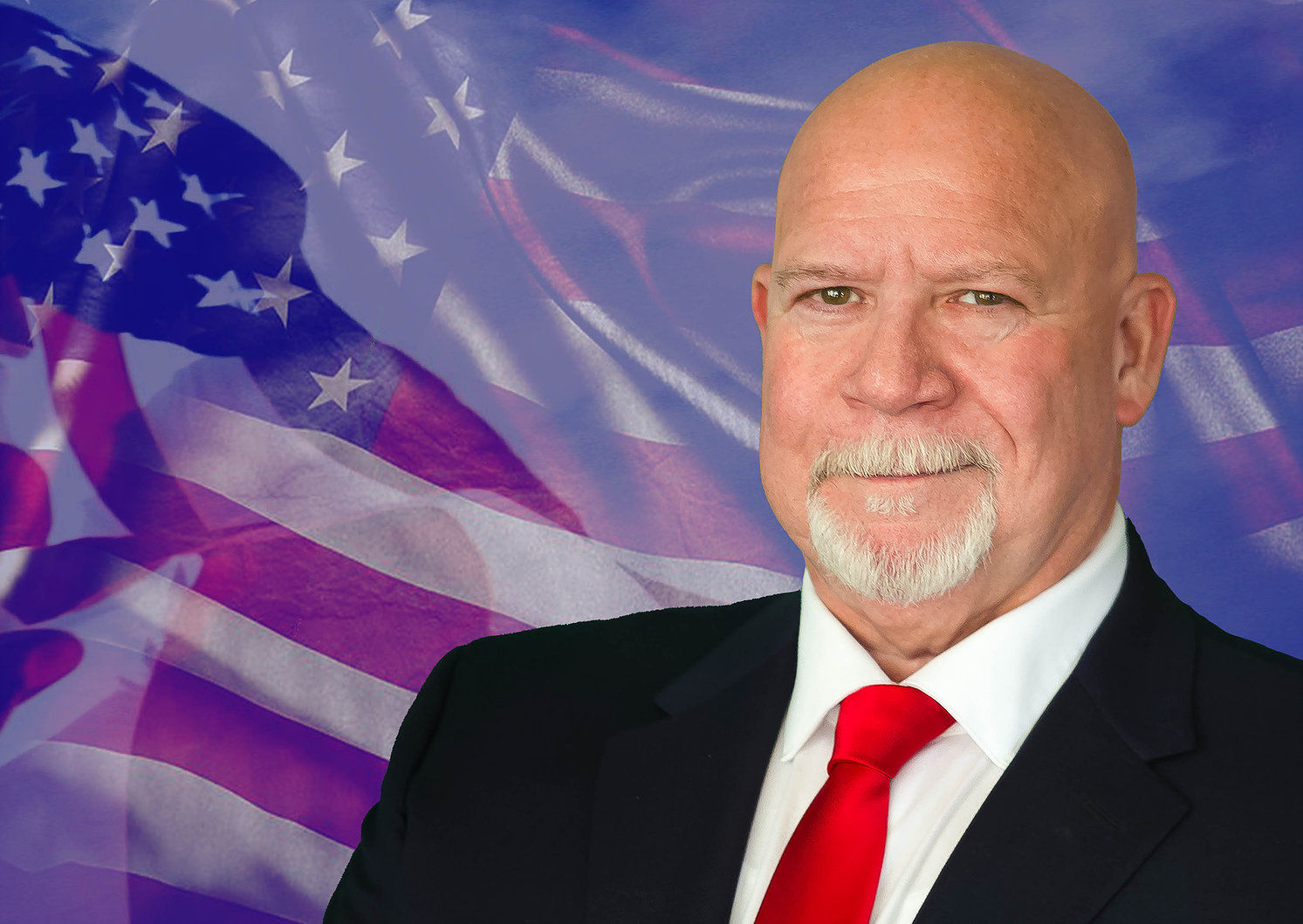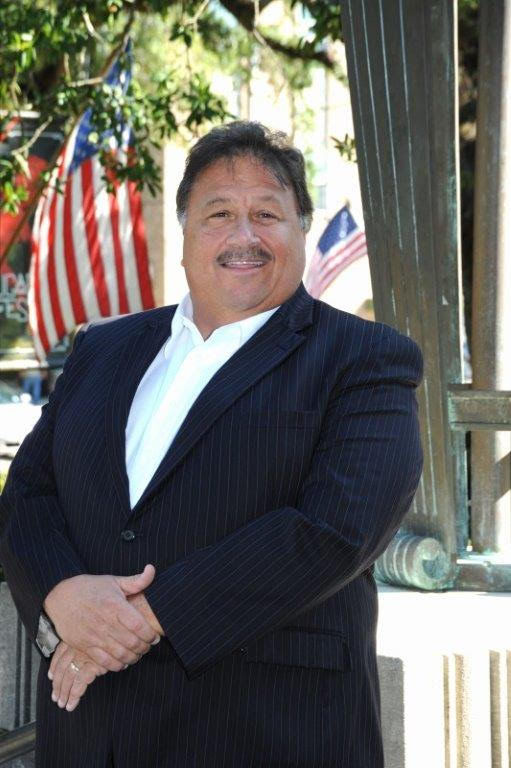
Texas Tale comes to Cajun Country
March 27, 2019
Retired federal agent throws hat in the ring to be the next sheriff
March 27, 2019The Terrebonne Parish Consolidated Government – which officials have made clear has no interest in joining other parishes suing oil and gas companies for coastal damages – has been working behind the scenes through its attorneys to audit the coastal work permits those companies may have held over decades or possibly may not have applied for.
But the parish has refused to hand over bills for the legal work, following a public records request by The Times, citing “attorney client privilege” and alleging that disclosure of the legal fees taxpayers are thus far responsible for would jeopardize legal strategy.
Parish Council members, who generally agree with Parish President Gordon Dove’s objection to suits against the oil companies, expressed surprise at the refusal, and said they would like to know more about what the parish is spending in connection with lawsuits it has vowed not to bring.
Dove has maintained that the work is being done to prepare for oil companies perhaps coming to Terrebonne offering settlements.
“If the oil companies would approach us for settlement, Terrebonne Parish would be ready even though I don’t think that will happen,” Dove said, volunteering information about the background work lawyers are doing, and objecting to a claim by Louisiana Department of Natural Resources Secretary Thomas Harris that Terrebonne is the only coastal parish making no moves in connection with alleged violation of coastal zone permit laws by oil and gas companies.
“I disagree with the contention that we have not done any assessments,” Dove said. “And if this litigation doesn’t hit for three or four years, damage models done now might be obsolete.”
Dove said recently for the first time that Hebert and assistant parish attorneys have been doing work related to coastal claims, suggesting that 3,000 out of about 8,000 such permits have been reviewed. The Times sought to determine how much the parish is paying for that work to be done.
The Times made the request as part of coverage that relates to a total of 23 coastal lawsuits brought against 47 oil companies by 11 Louisiana parishes, in which the State of Louisiana is an intervening plaintiff. In need of verification concerning damage to the Louisiana coast in Terrebonne, and noting the parish government’s position on such suits, LDNR appointed District Attorney Joe Waitz Jr. to perform an assessment of coastal damage in Terrebonne, and Waitz accepted. He hired two local law firms to do the work with no upfront costs to taxpayers. Gordon Dove – while making clear he has no quarrel with Waitz for accepting the assignment – questioned how attorneys could be doing such work without promise of a payday.
Parish attorney Julius Hebert maintains that he is the only attorney who can communicate with anyone concerning Terrebonne claims for coastal damage. For such work Hebert bills the parish, in accordance with his contract.
There is not known to have been any investigation of damages, and there has not been any indication that this information was shared with Parish Council members. Neither the parish president nor the parish attorney are required to notify the council of legal actions whose costs fall under certain thresholds. Requests for public records concerning legal bills, in most cases, are routinely granted. Court cases against government entities in Louisiana denying such requests have generally succeeded, in some cases when judges have agreed that information not considered public under specified exemptions can be redacted from such records.
On Jan. 30 Hebert sent letters to attorneys for oil companies with copies to Gov. John Bel Edwards, District Attorney Waitz and Attorney General Jeff Landry – who is also involved in the litigation – affirming himself as the only person with whom they should discuss litigation against them in regard to Terrebonne.
In the same letter Hebert assures the oil companies that Dove has not authorized litigation, but the parish “reserves all legal rights to pursue any claims arising from coastal use permits as allowed by Louisiana law.”
“Various energy (oil) entities, some of which are your clients, own large property acreage and/or rights to oil extraction in Terrebonne Parish and have been issued Coastal Permits,” Hebert’s letter to the oil company attorneys states. “Some of these entities have an operational presence in Terrebonne Parish. Terrebonne Parish Consolidated Government recognizes the extreme importance of these entities operations for its local economy, labor market and its citizens. Parish President Dove is willing to meet with your clients to discuss coastal permitting issues. Please advise if your clients are interested in engaging informal discussion with the parish president and me.”
The request from The Times for bills from Hebert & Marceaux, the firm which is contracted to represent the parish in civil matters with Julius Hebert as its named parish attorney under its file number 16243 – as noted in that letter – was made in order to independently verify and contextualize Dove’s claim.
The parish has routinely granted public records requests for legal bills in the past. A recent example was the billing by Hebert for attempting to involve the parish in a lawsuit against the state brought by the Terrebonne Parish NAACP. Dove wanted the presiding judge to allow the parish to intervene in opposition to the NAACP’s attempt to change how judges are elected in the parish, an at large system the organization claims is a violation of the U.S. Voting Rights Act. That case is still pending.
Parish Council members informed of the parish’s refusal to produce the bills were puzzled, and also noted that this was the first they have heard of the parish spending money in connection with the coastal zone controversy.
“Nobody in the administration has ever discussed this with me, they have never brought this up to us,” said Councilman Dirk Guidry of Chauvin. “Nobody has ever called me, ever e-mailed me about that. We have been kept in the dark. I am an elected person and I would like to see the bills.”
Councilman Darrin Guidry of Houma was also surprised by the news, as well as by the parish government’s refusal to honor the request from The Times.
“I was not aware we were spending any money in regard to these lawsuits, because we had voted not to take part in the suit,” Guidry said. “So, I am not aware that we spent any money and if we have spent money I would like to know why.”
Councilman Steve Trosclair, whose district includes Montegut and other coastal communities, said he is aware that some work was done, but not to what extent.
“I knew we had spent some money, but I don’t know if it is ongoing or where we are at in it,” Trosclair said. “I am definitely not in favor of the parish getting into litigation with oil companies to start with.”
Dularge Councilman Al Marmande acknowledges that he is no expert in the area of public records requests, and so could not comment on the parish’s position concerning the request for bills from The Times. But he is also puzzled as to why parish money is being spent in connection with coastal claims.
“I just thought that the administration is against suing them, and I don’t like the idea either,” Marmande said. “Even if we get some money and get a few dollars, what if the oil companies decided to leave Louisiana or Terrebonne Parish with their money and their jobs for average Terrebonne Parish residents.”
Marmande said he is curious about what the parish is spending on legal fees relating to coastal permits and why.
“I wouldn’t mind knowing what they are doing,” Marmande said.
Councilman Gerald Michel would like to know as well.
“If there is no litigation which is what we are being told, there is nothing to keep quiet from the public,” Michel said. “I am not aware any further of anything involving this, other than the fact that at one time years ago the parish council decided it was not interested in pursuing lawsuits against oil companies, although since much time has passed maybe it is something we should revisit.”
Houma Councilman John Navy said he has faith in the decisions of Parish President Dove and in the work of legal talents of Julius Hebert. But the perception that the parish’s refusal to show the bills for the legal work, he said, makes the matter uncomfortable.
“I believe in transparency and I believe in Jules Hebert, he is a brilliant attorney,” Navy said. “When something like this comes up and we don’t open something up, the perception of transparency suffers. There are sometimes differences between the responsibilities of an attorney and of the elected officials.”
The public records request from The Times was made March 17 to public records custodian Mart Black, “for all billing submitted to the parish from Hebert & Marceaux and/or any other attorneys or firms in regard to Hebert file number 16243, also potentially filed as TPCG COASTAL USE PERMITS LITIGATION.”
Black responded within the time frame the law requires, stating that the parish “respectfully objects to the release of the information you requested because the information references legal opinions and legal matters.”
“Legal opinions are protected under the exemptions of LRS 44:4 (15) which states that any information concerning pending legal files of an attorney representing a municipality is exempt,” Black’s letter states. “Also, LRS 44:4.1 (C) states ‘The provisions of this chapter shall not apply to any writings, records, or other accounts that reflect mental impressions, conclusions, opinions or theories of an attorney or expert obtained or prepared in anticipation of litigation or preparation for trial.’”
Black cites a 1992 case, Texaco v. Louisiana Land & Exploration Co., in which the court held that the attorney-client privilege is an excepction to the public records act. A Louisiana Court of Evidence article 805 F. Supp 385 (MD La 1992), the court held that the attorney/client privilege is an exemption to the public records act.
“In addition, the fees and costs associated with an individual attorney for on-going work and files reflect the strategies of the client and its attorneys,” Black’s letter states, without providing an authority on which that claim rests. “These materials are also privileged until the matter in question is concluded.”
The newspaper responded, with a suggestion that any material in the bills which would not match public records law muster could be redacted, a compromise courts have used with success in similar situations, noting the potential for disclosure of matters considered attorney-client privilege.
“While we agree that in some cases this might well apply, a mere attempt to learn what the people of Terrebonne Parish are paying for this fact-finding project in no way is such a violation, in our opinion,” the Times response states. “There is no litigation planned by TPCG against oil companies, per public statements by the parish president and a resolution of the council. In a letter from the parish attorney sent to various oil companies released to us by the parish president, the parish attorney himself has stated that he does not plan on litigating against oil and gas companies.”
The newspaper has the option, if its request is not granted in accordance with the law, of pursuing a complaint with the district attorney, the Attorney General, or the courts.
Black stated that the parish is reviewing the newspaper’s objection and expects to submit a response this week.
Asked directly why the parish is refusing to provide the billing information on several occasions Sunday through text messages, Dove did not answer the question. •











